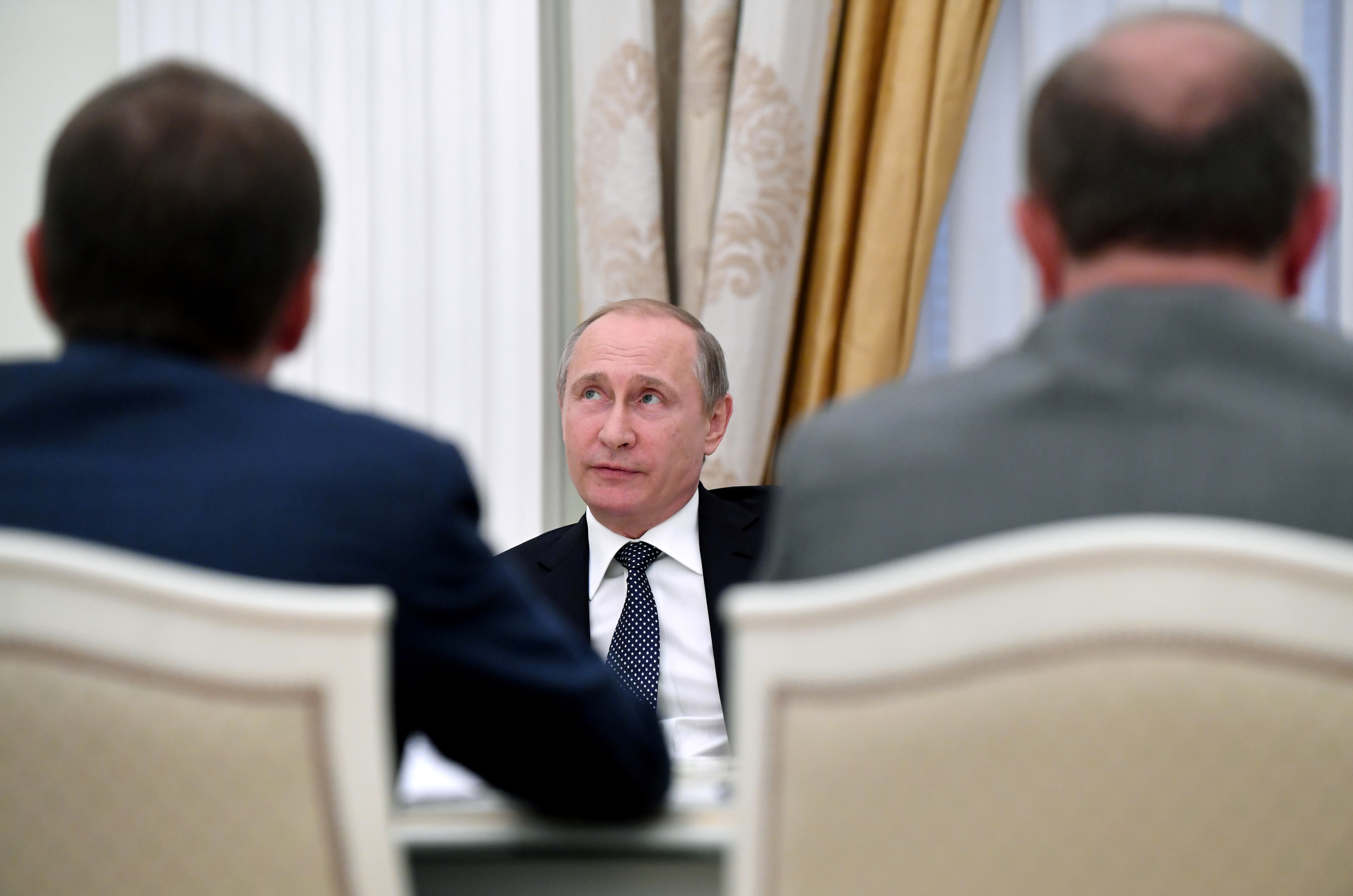Democrats: Please don't lose your heads over Russia
Let's stay nuanced


A free daily email with the biggest news stories of the day – and the best features from TheWeek.com
You are now subscribed
Your newsletter sign-up was successful
The resignation of Michael Flynn as national security adviser came a mere 24 days after he was appointed — a new record for shortest tenure in the post. The reason, apparently, was a warning from the Justice Department that Flynn had lied to the White House about discussing sanctions with the Russian ambassador. These conversations were intercepted as part of routine surveillance of foreign diplomats, and someone leaked the details to reporters at various publications (committing a felony in the process).
This is a good opportunity to take stock of the murky situation regarding Russia and the Trump administration, and how Democrats should think about Russian espionage and influence. It will be necessary to chart a course between excessive credulity about Russian capabilities and intentions, and excessive skepticism about the actual threat to left-wing political goals.
Let's begin with Russian activity during the 2016 election. Whenever I have referenced the common view that Russian intelligence was behind the hack of the DNC and Hillary Clinton's campaign chair John Podesta, I hear a lot of skepticism from certain lefty quarters. Now, it is the case that one of the main sources behind the Russia hack story is the CIA, and given their mile-long history of bumbling incompetence, you should take their arguments with a large handful of salt.
The Week
Escape your echo chamber. Get the facts behind the news, plus analysis from multiple perspectives.

Sign up for The Week's Free Newsletters
From our morning news briefing to a weekly Good News Newsletter, get the best of The Week delivered directly to your inbox.
From our morning news briefing to a weekly Good News Newsletter, get the best of The Week delivered directly to your inbox.
But it's not just the CIA with evidence that Russia was behind the hacks. There is much circumstantial evidence (compiled by Vice here and here) as well, including odd technical details and known association with Russian government sources.
So it's not an ironclad story, but it is a credible one. Fundamentally, it fits perfectly with Russia's strategic interests. Putin would very much like to get American sanctions lifted, and Clinton was and is belligerently hostile to Russia and their allies. Doing some (apparently trivially easy) hacking to give a more friendly presidential candidate a leg up in the election is more or less a no-brainer for any country in such a position — and the sort of thing the U.S. has itself done on dozens of occasions. And with Rex Tillerson as secretary of state (the recent CEO of ExxonMobil, which has billions in oil leases tied up behind the sanctions wall) the plan shows every sign of working.
But does that mean the Russians were entirely responsible, as is often heard in center-left circles, for Clinton's loss? Of course not.
The hacking story maybe took a point off Clinton's polling, but that only made a difference on Election Day because she was so unpopular in the first place — something that was established by late 2015.
A free daily email with the biggest news stories of the day – and the best features from TheWeek.com
And Russia is not some sort of omnipotent puppet master. As Charlie Warzel writes, since Trump's victory an entire cottage industry of anti-Russia center-left punditry has sprung up, combing through public information to construct bizarre and often extremely paranoid narratives about Russian influence over Trump and the world at large.
This is garbage analysis, but it's also important not to lurch to the other extreme and reflexively absolve Russia of any guilt, as some on the left want to do. The trouble is, much of the left-wing resistance to the Russian hacking story is due to how it's sometimes framed as an exculpation of Clinton's rotten campaign. That's a fair point — but it doesn't rule out some Russian assistance of Trump either.
The truth is that there is simply no substitute for serious reporting, careful examination of evidence, and above all some common sense. Russian intelligence may have scored a major victory here, but that was due more to astounding good fortune than it was to skill. On the whole, the FSB is probably not much more competent than the fumble-fingered American security apparatus, reacting on instinct and being constantly surprised rather than controlling events according to some devious master plan. (Indeed, the Russian leadership is reportedly rather alarmed at how incredibly chaotic the Trump White House has been.)
Ultimately, Putin did connive to elect Trump, and must therefore be considered an obstacle to left-wing objectives in the United States — particularly global climate policy, which must eventually destroy Russia's large fossil fuel industry. The next Democratic presidential campaign should take steps to encrypt its internal communications, and defend its networks against hacking.
Yet they must not overreact either.
One must also remember that the Obama presidency had many pointless provocations of Russia, particularly the effort to extend NATO ever farther east. That and Hillary Clinton's furiously aggressive posture towards Russia and Putin during the campaign were in retrospect disastrous strategic errors. It would be a mistake to simply give Russia whatever it wants, of course, but they are also the world's only other nuclear superpower. So it's always better to avoid needless provocation, and be ready to use diplomacy.
Future left-wing politicians and presidents must be highly wary of Russia, but also do their utmost to live peaceably with them.
Ryan Cooper is a national correspondent at TheWeek.com. His work has appeared in the Washington Monthly, The New Republic, and the Washington Post.
